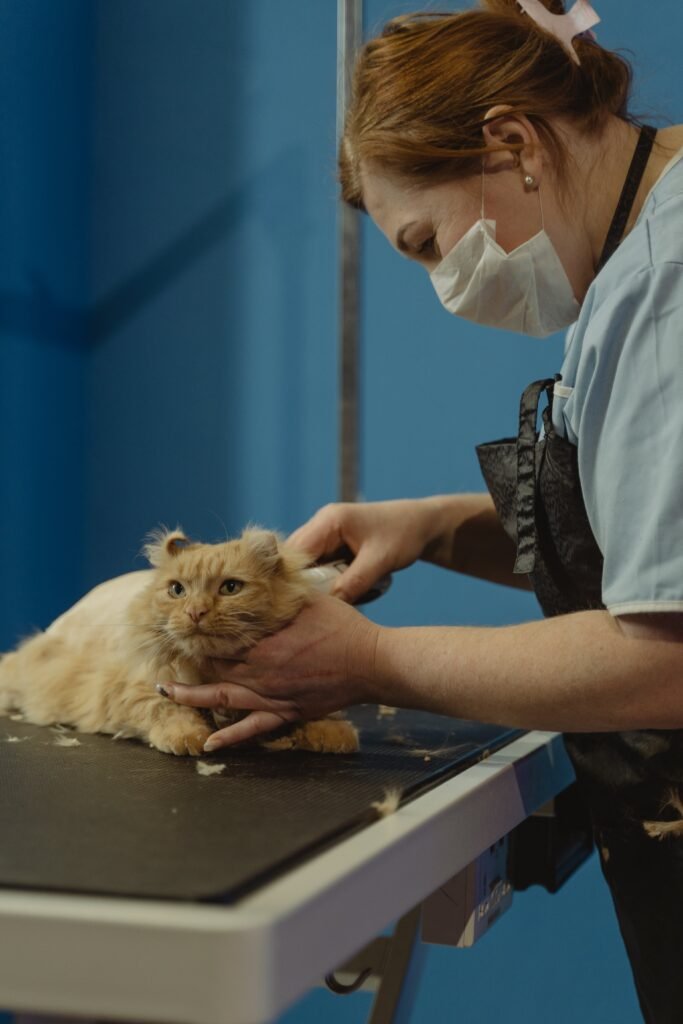Does your cat’s breath smell worse than usual? Halitosis, or bad breath, in cats is not just unpleasant — it can be a sign of underlying health issues. While occasional bad breath can happen, persistent halitosis usually points to something more serious. In this post, we’ll explore what causes bad breath in cats, how to treat it, and ways to prevent it.
Causes of Halitosis in Cats
There are several possible causes of halitosis in cats, and understanding these can help you address the problem more effectively.
- Dental Disease: The most common cause of halitosis is dental disease, including plaque buildup, gingivitis, and periodontitis. These conditions allow bacteria to thrive, leading to bad breath.
- Gum Infections: Infections of the gums, such as gingivitis or advanced periodontitis, can cause strong odors in your cat’s mouth.
- Diet-Related Issues: Sometimes, what your cat eats can impact their breath. Fish-based foods or a raw diet can result in stronger smells.
- Gastrointestinal Problems: Digestive issues, such as acid reflux or an upset stomach, can also cause bad breath in cats.
- Kidney or Liver Disease: In more severe cases, halitosis can be a sign of kidney or liver disease. These conditions cause toxins to build up in the body, leading to unpleasant odors from the mouth.
Signs and Symptoms of Halitosis in Cats
Halitosis is usually accompanied by other signs that indicate your cat’s oral health might be compromised. Look out for:
- Persistent bad breath: If your cat’s bad breath doesn’t go away after a few days, it could be more than just a food issue.
- Drooling or pawing at the mouth: These behaviors might indicate discomfort or dental pain.
- Red or swollen gums: Inflammation of the gums is a clear sign of gum disease, which often leads to bad breath.
- Difficulty eating: If your cat is avoiding food or seems to struggle when chewing, it could be due to dental issues.
- Visible plaque or tartar: Yellow or brown buildup on your cat’s teeth is a common cause of bad breath.
How Halitosis Affects a Cat’s Health
While bad breath may seem like a minor issue, it can signal more serious health problems. For example, dental disease like periodontitis can lead to infections that spread throughout the body. In advanced cases, bacteria from the mouth can enter the bloodstream, causing issues with vital organs such as the heart, liver, or kidneys.
Halitosis can also indicate kidney disease or liver problems, which require immediate medical attention. If your cat’s breath smells like ammonia, this could be a sign of kidney disease, as the kidneys are not filtering waste properly.
Diagnosing Halitosis in Cats
If your cat has persistent bad breath, it’s time for a vet visit. Diagnosing halitosis starts with a thorough examination of your cat’s mouth. Your vet will check for signs of dental disease, such as inflamed gums or tartar buildup. They may also recommend blood tests or X-rays if they suspect kidney or liver problems.
Treatment for Halitosis in Cats
The treatment for halitosis depends on the underlying cause:
- Professional Dental Cleaning: This is the most common treatment for halitosis caused by dental issues. A vet will clean your cat’s teeth under anesthesia, removing plaque and tartar.
- Tooth Extractions: If a tooth is infected or severely damaged, your vet may recommend removing it to prevent further complications.
- Medications: If an infection is present, antibiotics may be prescribed to clear it up.
Home Care for Preventing Halitosis
Maintaining your cat’s dental health at home can help prevent bad breath from developing. Here are some simple steps:
- Brushing Your Cat’s Teeth: Use a pet-safe toothbrush and toothpaste designed for cats. Start slowly and try to brush their teeth a few times a week.
- Dental Treats or Chews: Some treats and chews are designed to help reduce plaque and freshen your cat’s breath.
- Water Additives: These products can be added to your cat’s drinking water to promote oral hygiene and reduce bad breath.
Diet and Halitosis
Your cat’s diet can also play a role in their oral health. Dry food is often recommended for cats with dental issues because the crunchy texture helps scrape plaque off their teeth. You can also look for special diets that are formulated to promote dental health.
On the other hand, wet food or diets high in fish can sometimes contribute to stronger breath odors. Consider balancing your cat’s diet or using dental treats to minimize bad breath.
When to Visit the Vet
It’s important to know when bad breath is a cause for concern. If your cat has persistent halitosis, along with symptoms like drooling, pawing at the mouth, or difficulty eating, a vet visit is necessary. Additionally, if your cat’s breath smells unusually strong or like ammonia, this could indicate a more serious health problem.
Regular dental check-ups are important, and most cats benefit from professional cleanings once a year or as recommended by your vet.
The Importance of Dental Hygiene in Cats
Good dental hygiene is key to preventing halitosis and keeping your cat healthy. Regular brushing, professional cleanings, and dental treats all play a part in maintaining your cat’s oral health. Left untreated, dental disease can lead to more severe health problems, so it’s important to address bad breath early.
Conclusion
Halitosis in cats is often a sign of dental problems, but it can also indicate other health issues like kidney or liver disease. By keeping your cat’s teeth clean and visiting the vet for regular check-ups, you can prevent bad breath and ensure your cat stays healthy. Remember, if your cat’s bad breath persists or is accompanied by other symptoms, a vet visit is essential.
FAQs
1. What home remedies can help with bad breath in cats?
Brushing your cat’s teeth regularly and offering dental treats or chews can help reduce bad breath. You can also use water additives that promote oral hygiene.
2. Is halitosis common in older cats?
Yes, older cats are more prone to dental issues like gingivitis and periodontitis, which can cause bad breath.
3. Can bad breath be a sign of something serious in cats?
Yes, persistent bad breath can indicate dental disease, kidney problems, or liver disease. If bad breath is accompanied by other symptoms, a vet visit is necessary.
4. How often should I brush my cat’s teeth?
Ideally, you should brush your cat’s teeth at least 2-3 times a week to prevent plaque buildup and maintain oral health.
5. What’s the best way to prevent halitosis in my cat?
Regular dental care, including brushing, using dental treats, and scheduling professional cleanings with your vet, is the best way to prevent halitosis.


